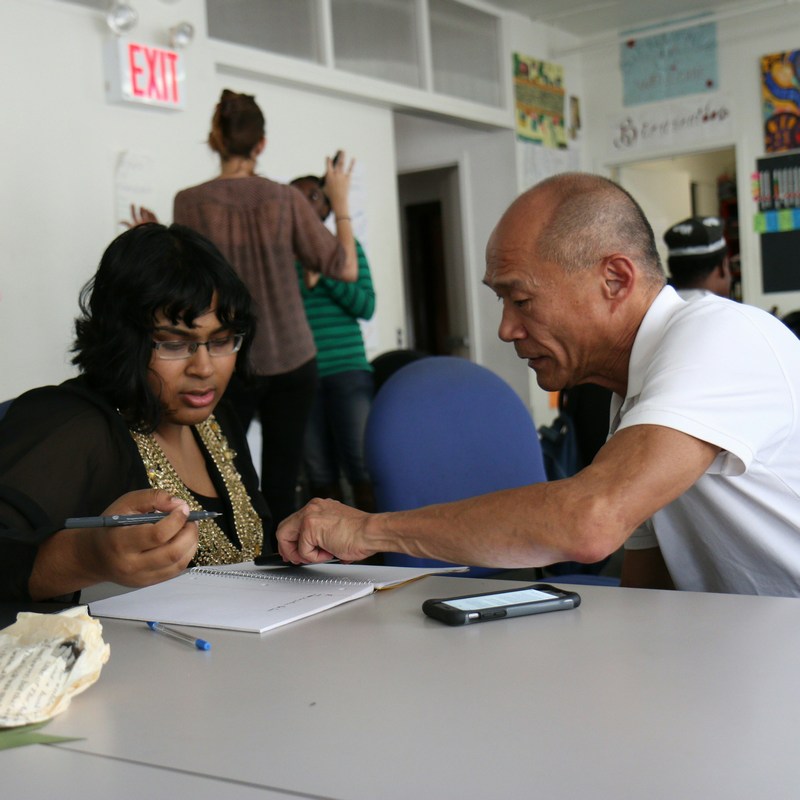
Author: Dr. Jenny McCormack Walker, Literacy Texas Executive Director
Since his election, President Trump has prioritized the need to reform wasteful spending on the federal level. Most Americans would agree that a sensible and efficient approach to spending benefits us all.
However, the proposed “skinny budget” for FY26 calls for the complete elimination of funds for adult education (page 6).
Funding adult education and literacy is the opposite of wasteful. The truth is that an investment in our work is an investment in the future of our country and of our state.
First, this investment helps provide an educated workforce for continued economic development.
The United States is a strong world leader in many industries, and Texas, specifically, has become home base for many leading corporations focusing on a variety of vital fields including technology, manufacturing, agriculture, and others.

To push forward continued growth in these areas, we must have people to fill jobs and to lead innovation. Adult Education programs help people build the skills they need to join the workforce and help these companies flourish. A rise of just 1% in literacy scores leads to a 2.5% rise in labor productivity and a 1.5% rise in GDP.
Additionally, Adult Education is an investment in the next generation. According to the National Center for Education Statistics, a division of the U.S. Department of Education, Texas ranks among the lowest states in the country for literacy, with 28 percent of adults functioning at or below a level 1 for reading (the lowest level) and 40 percent of adults functioning at or below a level 3.
Many young students are being sent home with books to read to parents who themselves do not have adequate literacy skills. Texas has done a great job in recent years at supporting early childhood literacy programs, but active involvement of parents and caregivers is a critically important component of many of those programs. When we fail to invest in Adult Education, we leave those children without the support they need, and the low literacy cycle will perpetuate.
One of the points the president uses to justify the elimination of this funding is the so-called “dismal” results found in Adult Education programs. What many may not realize is that there are millions of people who need our services, but Adult Education and literacy providers have been operating with skeleton crews and shoestring budgets – for decades! It’s impossible to make the kind of population-level change we need to see with even less funding than we currently receive.
Instead of being cut, Adult Education funding should be expanded.
“Recent causal research in Massachusetts offers a glimpse of what’s possible if AEFLA [Adult Education and Family Literacy Act] had a larger budget. Researchers were able to take advantage of the state’s waiting lists and admissions lotteries to compare the outcomes of learners who were admitted to an English language acquisition program in Framingham with those of learners who lost the lottery and were turned away.
…Researchers found that participation boosted the annual earnings of learners by 56 percent over the 10 years following their admission to the program. Participants were three times as likely to have middle-class annual earnings in the range of $60,000 to $70,000 in any year as those who were not admitted. Importantly, the increased tax revenue generated by those earning gains fully covered the costs of the program.
In other words, adult education, if adequately funded and well-implemented, can pay for itself.”
Quote from NewAmerica.org
There is a small window of time before the budget becomes official, and if you’re interested in supporting Adult Education, you can help. Literacy Texas is joining forces with the Coalition on Adult Basic Education (COABE) and their advocacy efforts, as well as ProLiteracy, who is urging action on the same issue. We encourage you to learn more about these campaigns (COABE) (ProLiteracy) and to help us communicate the crucial importance of the continuation of Adult Education funding.
Investing in Adult Education will pay dividends well into the future. The elimination of funding for this work will be devastating in many ways, and it will negatively impact both economic development and future generations of Texans. Lawmakers should rethink this budget proposal and include expanded funding for Adult Education.
Please act now.
Amazing things are happening in Texas!
“Best of Texas” brings local experts together to share their wisdom and experience.









